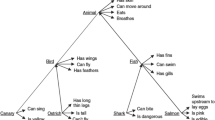Abstract
A persistent boast of the historical approach to functions is that functional properties are normative. The claim is that a token trait retains its functional status even when it is defective, diseased, or damaged and consequently unable to perform the relevant task. This is because historical functional categories are defined in terms of some sort of historical success -- success in natural selection, typically -- which imposes a norm upon the performance of descendent tokens. Descendents thus are ‘supposed to’ perform the associated task even when they cannot. The conceit, then, is that malfunctions are explicable in terms of historical success. The aim of this paper is to challenge this conceit. My thesis is that the historical approach to functions lacks the resources with which to account for the possibility of malfunctions. If functional types are defined in terms of historical success, then tokens that lack the defining property due to defect, and tokens that have lost the defining property due to disease or damage, are excluded from the functional category. Historically based malfunctions, in consequence, are impossible. The historical approach is no better than its non-historical competitors in accounting for the presumed normativity of functional properties.
Similar content being viewed by others
References
Amundson, Ron and Lauder, George: 1994, ‘Function Without Purpose: The Uses of Causal Role Function in Evolutionary Biology’, Biology and Philosophy 9, 443–469.
Brandon, Robert: 1981, ‘Biological Teleology: Questions and Explanations’, Studies in History and Philosophy of Science 12, 91–105.
Brandon, Robert: 1990, Adaptation and Environment, Princeton University Press, Princeton.
Buller, David: 1998, ‘Etiological Theories of Functions: A Geographical Survey’, Biology and Philosophy 13, 505–527.
Cummins, Robert: 1975, ‘Functional Analysis’, Journal of Philosophy 72, 741–765.
Davies, Paul Sheldon: (under review), ‘Why Selected Functions are Systemic Capacity Functions’.
Davies, Paul Sheldon: (in preparation), Norms of Nature: The Theory of Systemic Capacity Functions.
Godfrey-Smith, Peter: 1994, ‘A Modern History Theory of Functions’, Nous 28(3), 344–362.
Griffiths, Paul: 1992, ‘Adaptive Explanations and the Concept of a Vestige’, in P. Griffiths (ed.), Trees of Life: Essays in the Philosophy of Biology, Kluwer Academic Publishers, Dordrecht.
Kettlewell, H.B.D.: 1973, The Evolution of Melanism: The Study of a Recurring Necessity, Oxford University Press, Oxford.
Kitcher, Philip: 1993, ‘Function and Design’, in Peter French, T. Uehling, Jr. and H. Wettstein (eds.), Midwest Studies in Philosophy, Volume XVIII, University of Notre Dame Press, Notre Dame, pp. 379–397.
Lycan, William: 1988, Judgement and Justification, Cambridge University Press, Cambridge.
Millikan, Ruth: 1984, Language, Thought, and Other Biological Categories, MIT Press, Cambridge.
Millikan, Ruth: 1989, ‘In Defense of Proper Functions’, Philosophy of Science 56, 288–302.
Millikan, Ruth: 1990, ‘Truth Rules, Hoverflies, and the Kripke-Wittgenstein Paradox’, Philosophical Review 99, 323–353.
Millikan, Ruth: 1993, White Queen Psychology and Other Essays for Alice, MIT Press, Cambridge.
Neander, Karen: 1991, ‘Functions as Selected Effects: The Conceptual Analyst's Defense’, Philosophy of Science 58, 168–184.
Neander, Karen: 1995, ‘Misrepresenting and Malfunctioning’, Philosophical Studies 79, 109–141.
Nozick, Robert: 1993, The Nature of Rationality, Princeton University Press, Princeton.
Papineau, David: 1987, Reality and Representation, Basil Blackwell, Oxford.
Papineau, David: 1993, Philosophical Naturalism, Basil Blackwell, Oxford.
Post, John: 1991, Metaphysics: A Contemporary Introduction, Paragon House, New York.
Sober, Elliott: 1984, The Nature of Selection, MIT Press, Cambridge.
Walsh, D.M.: 1996, ‘Fitness and Function’, British Journal for the Philosophy of Science 47, 553–574.
Walsh, D.M. and Ariew, Andre: 1996, ‘A Taxonomy of Functions’, Canadian Journal of Philosophy 26, 493–514.
Wimsatt, William: 1997, ‘Functional Organization, Functional Analogy, and Functional Inference’, Evolution and Cognition 3, 102–132.
Wright, Larry: 1973, ‘Functions’, Philosophical Review LXXXII, 139–168.
Wright, Larry: 1976, Teleological Explanations, University of California Press, Berkeley and Los Angeles.
Author information
Authors and Affiliations
Rights and permissions
About this article
Cite this article
Davies, P.S. Malfunctions. Biology & Philosophy 15, 19–38 (2000). https://doi.org/10.1023/A:1006525318699
Issue Date:
DOI: https://doi.org/10.1023/A:1006525318699




